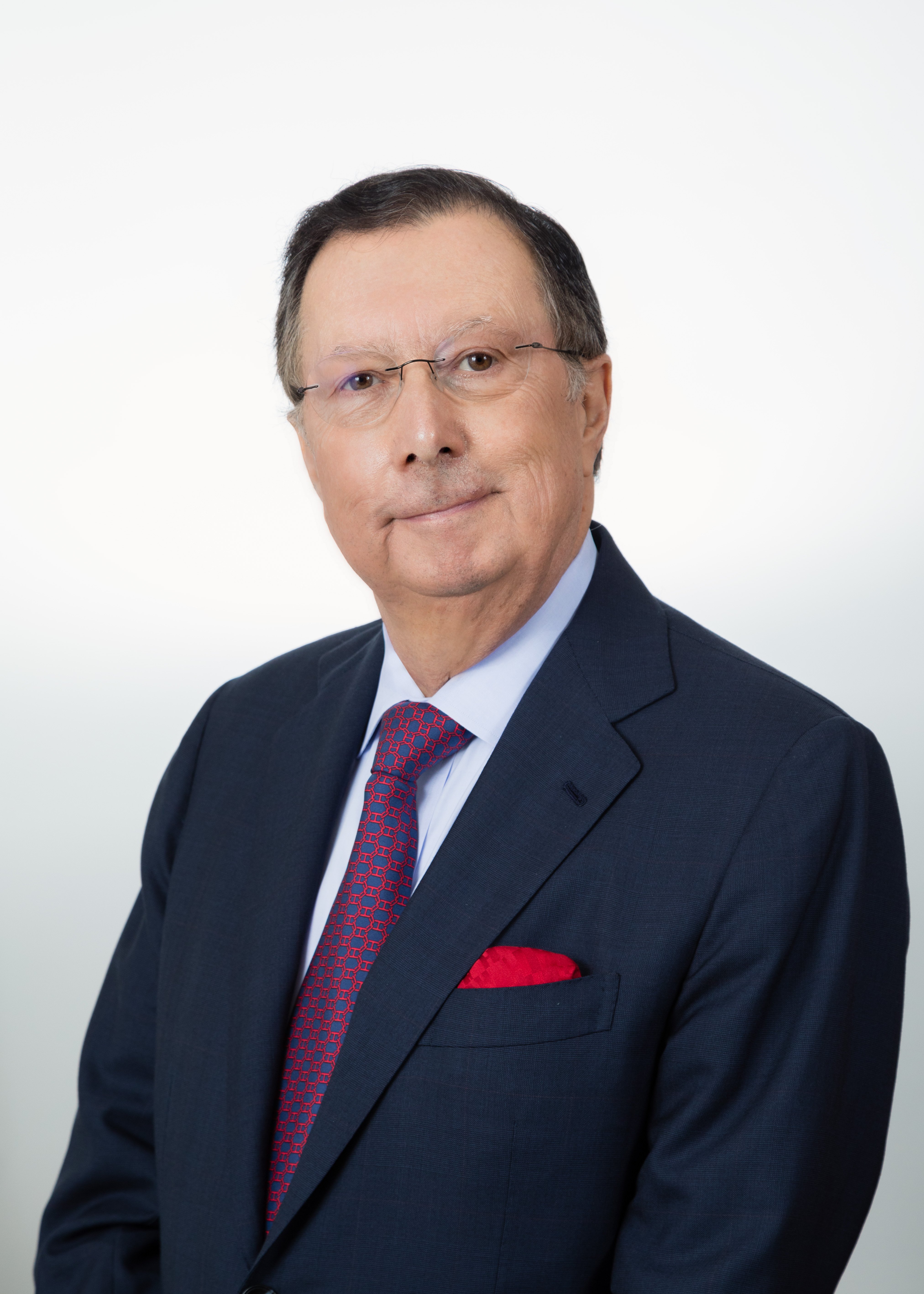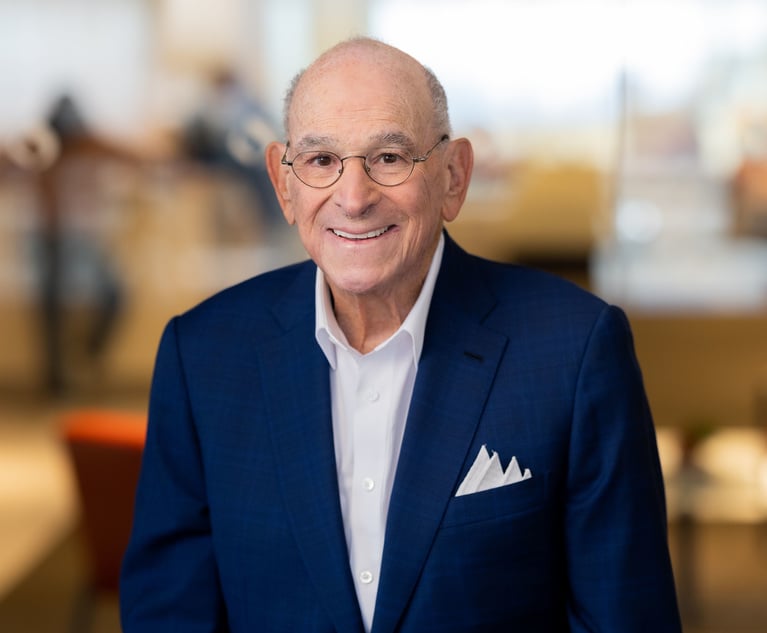In Law Firms, 'Caste System' Persists Among Attorneys and Business Professionals
Professional law firm staff report there's a two-tiered system within firms that minimizes their role and contributions. "I quickly learned about a caste system," one former staff member said, "an attorney and nonattorney world within a law firm."
August 19, 2019 at 05:30 AM
6 minute read
The original version of this story was published on The American Lawyer
 shutterstock.com
shutterstock.com
When Carolyn Park first landed in a big firm in New York after pivoting from associate to business development, her boss told her to mention that she had a J.D. when she introduced herself to other partners.
"They said, make sure you point out that you were a practicing attorney, because they'll respect you more," said Park, a former Texas attorney who has worked on the staff side at large firms including Paul, Weiss, Rifkind, Wharton & Garrison and Arnold & Porter Kaye Scholer. She declined to name the firm where these events happened.
"I quickly learned about a caste system," she continued, "an attorney and nonattorney world within a law firm."
While the last decade has brought a revolution of global law firms employing thousands of attorneys and an army of professional staff—pricing executives, marketers and legal operation specialists, among many others—many professional law firm staff tell stories of a two-tiered system that minimizes their role and contributions. Observers said the caste system is a long-standing cultural mindset that stems from an age when firms were smaller and more informal, without hundreds of employees.
In some firms, the separation between lawyers and staff is literal: Katten Muchin Rosenman's largest office in Chicago had two separate cafeterias, with the majority of staff barred from eating in the attorney dining room.
"It made me feel worthless, that what I offer means nothing to you, and that you don't care about me," said a former Katten business professional.
Katten did not return a request for comment.
Nearly every law firm professional has a war story: a thrown stapler, ignored emails and even public shaming. Professionals find themselves constantly scrambling to justify their presence, and just one mistake—even a small PowerPoint typo—can erase all the goodwill.
Park remembers being publicly shamed by a senior partner after submitting the wrong version of a Chambers and Partners entry. After privately emailing the partner to point out the mistake, he berated her in an email sent to all the partners in the firm.
"If you're a legal professional trying to earn respect from your partners, that's how they destroy it," said Park, who left the legal industry in 2017. "You can't say anything; you can't do anything. You just have to take it."
Many say the unequal treatment exacerbates the already stressful environment within Big Law firms, leading to mental health concerns among staff.
Even as mental health awareness in the legal industry is gathering steam, professional staff often do not have access to the same wellness resources offered to their attorney colleagues. An ALM survey of 30 Am Law firms found that 36% of firms that say they offer mental health programming do not extend those programs to their professional staff.
The difficulty in proving one's value to partners is so pervasive that professional conferences devote entire sessions to strategies and tips. At the 2019 Legal Marketers Association Conference in Atlanta there was a session titled "How to Secure a Seat and Have Your Voice Heard at the Power Table."
Angela Hickey, CEO of Chicago-based Levenfeld Pearlstein and a member of the firm's executive committee, remembers palpable discomfort when she met with another law firm's executive committee. On three separate occasions, the other partners mentioned aloud that they "did not have nonlawyers on their executive committee."
"Well I'm on an executive committee with a lot of non-MBA's," Hickey said. "I know a hell of a lot more than you do on running a business. Let's talk about what we have to offer as opposed to what we don't have."
|Good Business Practices
The ranks of business professionals within law firms are only going to grow in the coming years as clients demand cheaper, more efficient services.
Husch Blackwell's legal operations team led by Kevin Bielawski, for example, won accolades for developing a proprietary system that assessed risk and probable outcomes to help channel resources appropriately. The system resulted in a 53% reduction of active litigation for one of their clients, Monsanto. Neither Bielawski or Paul Eberle, Husch Blackwell's CEO, have law degrees.
Legal industry observers said firms that were first movers in technology and practice management systems such as Latham & Watkins and Kirkland & Ellis have comparatively better reputations in how they treat business professionals. Because the firms had to get firmwide buy-in to take a risk in investing in large departments of professional staff, these professionals need to spend less time proving themselves to skeptical partners.
From Hickey's perspective, treating a firm's business professionals as lesser is a bad business practice, not just demoralizing.
"We hire these very smart, very talented well-trained people supposedly to help us with our business, and then we don't give them a seat at the table. What's the point?" she said. "If the point from a business perspective is to engage your assets and your only assets in a law firm are people, you have to engage them."
Legal consultant Ron Friedmann agrees. For two decades, Friedmann has been closely watching the development of professional staff within law firms. He frequently consults on legal operations and technological innovation.
"There are a host of professionals in law firms today that didn't exist in any capacity before," he said. "Multidisciplinary teams are what will be required to solve complex problems."
He added that changing this caste mentality will be incredibly difficult, unless a firm's attorneys work closely with staff, such as coordinating with them on matters and creating multidisciplinary teams. Culture alone, he said, is nearly impossible to change.
There may be less incentive to change the attorney-staff caste system at firms with the largest profit margins. But Friedmann said cultural change may be more likely at midsize firms. Between their peers, mid-size firms have less differentiation in the kind of work they do, he said, and the intense competition for clients and professional talent may reward the firms that value their staff and multi-disciplinary teams.
"If the nature of the work is changing, and the economics favor multidisciplinary teams, that's where survival of the fittest comes in," Friedmann said. "If business professionals feel like they have a home, they'd (law firms) get the better talent."
|Read More:
These Law Firms Are Investing in Legal Operations. It's Paying Off
This content has been archived. It is available through our partners, LexisNexis® and Bloomberg Law.
To view this content, please continue to their sites.
Not a Lexis Subscriber?
Subscribe Now
Not a Bloomberg Law Subscriber?
Subscribe Now
NOT FOR REPRINT
© 2024 ALM Global, LLC, All Rights Reserved. Request academic re-use from www.copyright.com. All other uses, submit a request to [email protected]. For more information visit Asset & Logo Licensing.
You Might Like
View All
These Law Firm Leaders Are Optimistic About 2025, Citing Deal Pipeline, International Business
6 minute read
‘A Force of Nature’: Littler Mendelson Shareholder Michael Lotito Dies At 76
3 minute read
Remembering Am Law 100 Firm Founder and 'Force of Nature' Stephen Cozen
5 minute read
Legal Departments Gripe About Outside Counsel but Rarely Talk to Them
4 minute readTrending Stories
- 1Call for Nominations: Elite Trial Lawyers 2025
- 2Senate Judiciary Dems Release Report on Supreme Court Ethics
- 3Senate Confirms Last 2 of Biden's California Judicial Nominees
- 4Morrison & Foerster Doles Out Year-End and Special Bonuses, Raises Base Compensation for Associates
- 5Tom Girardi to Surrender to Federal Authorities on Jan. 7
Who Got The Work
Michael G. Bongiorno, Andrew Scott Dulberg and Elizabeth E. Driscoll from Wilmer Cutler Pickering Hale and Dorr have stepped in to represent Symbotic Inc., an A.I.-enabled technology platform that focuses on increasing supply chain efficiency, and other defendants in a pending shareholder derivative lawsuit. The case, filed Oct. 2 in Massachusetts District Court by the Brown Law Firm on behalf of Stephen Austen, accuses certain officers and directors of misleading investors in regard to Symbotic's potential for margin growth by failing to disclose that the company was not equipped to timely deploy its systems or manage expenses through project delays. The case, assigned to U.S. District Judge Nathaniel M. Gorton, is 1:24-cv-12522, Austen v. Cohen et al.
Who Got The Work
Edmund Polubinski and Marie Killmond of Davis Polk & Wardwell have entered appearances for data platform software development company MongoDB and other defendants in a pending shareholder derivative lawsuit. The action, filed Oct. 7 in New York Southern District Court by the Brown Law Firm, accuses the company's directors and/or officers of falsely expressing confidence in the company’s restructuring of its sales incentive plan and downplaying the severity of decreases in its upfront commitments. The case is 1:24-cv-07594, Roy v. Ittycheria et al.
Who Got The Work
Amy O. Bruchs and Kurt F. Ellison of Michael Best & Friedrich have entered appearances for Epic Systems Corp. in a pending employment discrimination lawsuit. The suit was filed Sept. 7 in Wisconsin Western District Court by Levine Eisberner LLC and Siri & Glimstad on behalf of a project manager who claims that he was wrongfully terminated after applying for a religious exemption to the defendant's COVID-19 vaccine mandate. The case, assigned to U.S. Magistrate Judge Anita Marie Boor, is 3:24-cv-00630, Secker, Nathan v. Epic Systems Corporation.
Who Got The Work
David X. Sullivan, Thomas J. Finn and Gregory A. Hall from McCarter & English have entered appearances for Sunrun Installation Services in a pending civil rights lawsuit. The complaint was filed Sept. 4 in Connecticut District Court by attorney Robert M. Berke on behalf of former employee George Edward Steins, who was arrested and charged with employing an unregistered home improvement salesperson. The complaint alleges that had Sunrun informed the Connecticut Department of Consumer Protection that the plaintiff's employment had ended in 2017 and that he no longer held Sunrun's home improvement contractor license, he would not have been hit with charges, which were dismissed in May 2024. The case, assigned to U.S. District Judge Jeffrey A. Meyer, is 3:24-cv-01423, Steins v. Sunrun, Inc. et al.
Who Got The Work
Greenberg Traurig shareholder Joshua L. Raskin has entered an appearance for boohoo.com UK Ltd. in a pending patent infringement lawsuit. The suit, filed Sept. 3 in Texas Eastern District Court by Rozier Hardt McDonough on behalf of Alto Dynamics, asserts five patents related to an online shopping platform. The case, assigned to U.S. District Judge Rodney Gilstrap, is 2:24-cv-00719, Alto Dynamics, LLC v. boohoo.com UK Limited.
Featured Firms
Law Offices of Gary Martin Hays & Associates, P.C.
(470) 294-1674
Law Offices of Mark E. Salomone
(857) 444-6468
Smith & Hassler
(713) 739-1250








